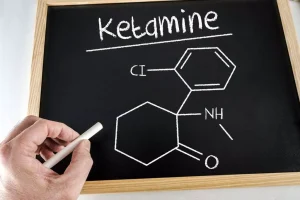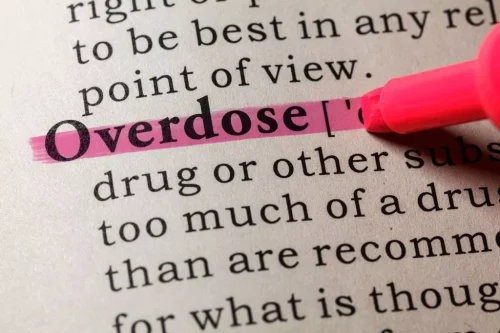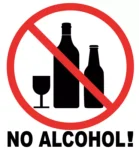The Alcohol-Depression Connection: Symptoms, Treatment & More

No matter the reasons behind feeling anger when drinking alcohol, such behavior can be harmful. By consistently becoming angry or belligerent when you drink, you put yourself and others at risk. Therefore, seeking a solution for alcohol-related aggression is essential for your future health and safety. Researchers evaluated the failure to consider future consequences as a significant risk factor for aggression (Bushman et al., 2012) In this study, 495 social drinkers were assigned to a group that consumed alcohol or a placebo group. They were also required to respond to the Consideration of Future Consequence Scale (CFC). It was found that those scoring lower became significantly more aggressive than those who had higher ratings on the CFC.
Anger Management And Alcohol Addiction

Often, when children, spouses and other loved ones spend time close to someone who becomes abusive when they drink, their lives change for the worse. For example, multiple studies have shown that children who are exposed to trauma at a young age — domestic abuse or violence linked to addiction, for example — are more likely to abuse substances or develop mental disorders when they grow up. While anger is an emotion you experience when you feel threatened, aggression is a hostile behavior that results in physical or psychological harm to yourself or others. Some individuals exhibit “trait anger,” a personality trait that means they continually look for triggers that make them angry. Mood stabilizers, antidepressants, or anti-anxiety medications can all help to regulate and control negative emotions, during both detox and treatment for anger management and alcohol addiction. After detox, individuals suffering from co-occurring disorders often proceed directly into a residential treatment program where structured around-the-clock programming can help to manage both disorders.
Tame Your Rage and Drink Less With Reframe!
The link between alcohol and anger has to do with alcohol’s ability to remove your inhibitions and disrupt your emotional regulation. When you drink alcohol, parts of your brain that manage anger are suppressed, making it more likely for angry feelings to bubble to the surface. The co-treatment of alcohol recovery and anger management can be a very individualized process that may change according to your needs. Your treatment will depend on the role alcohol plays in your life and how present anger is during your everyday lived experience. According to a review from 2017, alcohol is more likely to cause personality shifts related to negative emotions, but that doesn’t mean anger is the most common emotional experience while drinking. Likewise, hostility is an attitude of resentment and unfriendliness that doesn’t require feelings of anger.

Alcohol, Aggression, and Crime

It is important to understand the specific impact of alcohol on these conditions. This phenomenon highlights the complex interplay between alcohol and emotional regulation, underscoring the importance of mindfulness and alcoholic rage syndrome self-awareness in alcohol consumption. Understanding this dynamic highlights the importance of mindfulness and caution regarding alcohol consumption, particularly for individuals prone to anger-related challenges.
- What’s more, one can make the other worse in a cycle that’s pervasive and problematic if not addressed and treated.
- An example would be if you were to get cut off by another driver on a busy or chaotic highway.
- They first consumed alcohol and were asked to recognize the emotions of different faces on a computer task.
- The present work provided the information on role of anger on treatment outcome among dependent and abstainers.
- Additionally, those who already have difficulties with executive functions and impulse control are more liable to become angry, aggressive, and violent when their self-regulatory skills are further impaired by alcohol, ABC warns.
Serotonin in AUD and Aggression
- The goal of outpatient treatment is to provide therapy, education, and support in a flexible environment.
- Alcohol has a significant impact on our social landscape, from casual gatherings to formal events.
- Initial support for alcohol-adapted anger management treatment suggests that clinicians and researchers may have an additional intervention to address anger-alcohol associations.
- Prior reports have established alcohol-induced aggression among males (Lipsey et al., 1997), which appears to vary across the ethnic groups and geographical regions (Caetano et al., 2001).
- It’s when you can identify what’s wrong that you can begin to heal from it.
It is important to note that medications for alcohol use disorder are a first-line treatment. If you’re dealing with severe alcohol withdrawal symptoms, such as anxiety, insomnia, nausea, and hallucinations, among others, then your doctor may suggest medications such as chlordiazepoxide or other benzodiazepines. A total of 100 males (50 alcohol-dependent and 50 abstainers) in the age range of 20–45 years with a primary diagnosis of alcohol dependence were taken for the study. They were administered a semi-structured interview schedule to obtain information about sociodemographic details, information about alcohol use, its relationship with anger and its effects on anger control and the State-Trait Anger Expression Inventory. At the same time, people with depression may attempt to self-medicate with alcohol. Prior reports have established alcohol-induced aggression among males (Lipsey et al., 1997), which appears to vary across the ethnic groups and geographical regions (Caetano et al., 2001).
- The link between alcohol and anger has to do with alcohol’s ability to remove your inhibitions and disrupt your emotional regulation.
- It affects parts of your brain responsible for movement, memory, self-control, and basic functions like hunger and thirst.
- If you notice a connection between drinking heavily and your feelings of anger it is well worth trying this proactive approach.

If your behavior fits the description of an angry drunk, it may be difficult to admit you behaved that way under the influence. Many people whose behavior changes drastically with drinking have a hard time believing it when they’re sober. But the best choice for you and the people around you is to enter treatment and work to become a better person. A 2013 study published in the National Library of Medicine found that alcohol has both acute and chronic adverse effects on learning-related plasticity across brain regions, which contributes to cognitive dysfunction and even disability.
Triggers for Alcohol-Related Anger and Aggression
While anger can underlie aggression, you can be angry and not aggressive or aggressive without being angry. Alcohol is known for its ability to amplify emotional expression and inhibition. While it may seem like anger is the most common emotion caused by alcohol, it may not be that straightforward. Prosecutors suggested that future witnesses would include Lengyel’s ex-wife, Joleen Welch, whom Lengyel married in 2000 and divorced in 2017. Court records from Contra Costa County show that Welch was granted a domestic violence restraining order against Lengyel in November 2017. Kennedy suggests that treatment options can vary depending on the severity of your condition.
It means identifying your triggers for anger and finding out why you’re self-medicating with alcohol. It means learning how to approach your anger in a way that serves you and your recovery. Oftentimes, when talking about anger management, healing is also about setting boundaries and learning self-compassion. By prioritizing personalized interventions, we can help individuals with healing and self-discovery. Through empathy and support, we can create environments that nurture healthier relationships with both alcohol and emotions. Alcohol can have a significant impact on the functions of the brain as it acts as a depressor inhibiting the emotions.


